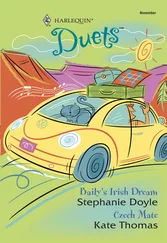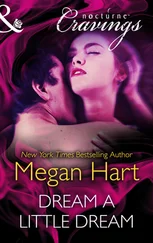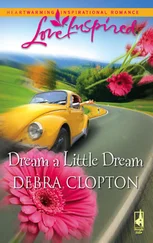“Fourth, that which exists not by necessity is comprehensible; but rather, that which exists of necessity is incomprehensible,” said Zhang Shu, picking up and reciting for Wuye. Wuye and Xingxing looked at him in surprise. “That which is real is the possible and cannot account for its own existence; whereas the necessary is that to which the possible owes its existence. The first necessary being is God. Fifth, the world is a single marvelous mechanism in which all things act for a purpose. This has to have been created by a superior intelligence, which is God. Right?”
“Yes, yes. . that’s right.” Wuye looked at Zhang Shu as if he were his savior. “Actually, many. . many of the founders of mo. . modern science were clergymen or priests. Bruno and Roger Bacon, f. . f. . for example, were both priests; Pascal was a great mathematician as well. . well as a pious believer. In fact, one could say that. . that all the great humanists of the Renaissance were Christians. .”
“So what of it?” said Xingxing, fanning herself with her cap. “What does that prove? I tell you, Buddhism has more in common with modern science. Let me give you a little example. Take the ‘vacuum’ in modern physics, for example, which includes an infinite number of particles that are endlessly produced and destroyed. This is identical to the Buddhist concept of ‘sunyata.’ The world is composed of these particles, but they lack independent physical existence, and the momentary appearance of this vacuum is just as expressed in the Buddhist sutra: ‘Form is emptiness; emptiness is form’ or as the neo-Confucian Zhang Zai put it in his Correcting Youthful Ignorance, ‘The Supreme Vacuity is material-force, then something and nothing. .’”
“Those are forced analogies. .”
“The two of you can keep arguing and there’ll never be a conclusion,” said Zhang Shu slowly. “You’ll never see eye to eye. One of you admires totalitarian religion; one of you admires humanistic religion. What I mean by totalitarian religion is that you admit there is an unknowable force dominating the world, which humanity must worship with fear and respect. God is omniscient and omnipotent; man is petty and insignificant. Humanistic religion, on the other hand, emphasizes human powers. Man wishes to understand himself and his relationship with others as well as his place in the universe. Man should realize his ideals and not blindly obey; man wants to exercise his powers and not be submissive. Have I understood it correctly?”
“I’ve. . I’ve never admired a totalitarian religion nor do I believe Christianity is anything of the sort. Jesus Christ himself was from an ordinary family and was always in the company of the lowest stratum of society. He cured their illnesses and helped them overcome their worries and their problems. If you are referring to the Old Testament, then there is a little of the ‘totalitarian’ there. But. . but the New Testament says “Love thine enemies,’ so how do you explain that? So the blood of Jesus Christ is not as valuable as the deer’s milk of Shakyamuni!”
As Wuye was speaking it suddenly occurred to Xingxing and Zhang Shu that Wuye was a Christian.
“It appears that Wuye is a Christian and that Xingxing is a devout Buddhist,” said Zhang Shu indolently. Recalling that he was supposed to meet Chen Qing that evening, he wanted to put an end to the conversation.
“I don’t believe in Buddhism.” So Xingxing was just as pigheaded as Wuye in her unwillingness to not let someone else have the last word. “When beautiful faith becomes a religion, then it has its dark and evil side. I think religion is a kind of spirit, one that can be self-deceiving. There’s nothing wrong with that per se. People are different from animals because animals only need deceive others, while people must not only deceive others but themselves as well. That’s the source of faith, ideals, and other trifles. Don’t you agree?”
Zhang Shu and Wuye both seemed to shiver.
Yu’er arrived. Amid the gray religious dispute appeared a beauty, the flower of creation.
“This is the embodiment of the truth, good, and beauty. What is God?”
Xingxing glanced at Wuye triumphantly.
“Are. . aren’t you a bit hasty in your conclusions?” Wuye immediately replied. Xingxing discovered that when Wuye was anxious, he began to stammer and that the clearer he tried to express himself the more unclear he became. In this regard, he was different from Xiaojun, she thought.
7
Zhang Shu and Xingxing were both mistaken. Wuye was the only member of his family who was not a Christian, but he did believe in the “Christian spirit.” In this regard, he was unlike most men. Giving made him happy, and he would even give his life for someone he liked. He came from an old distinguished family, one of the top families south of the Yangtze River. Everyone knew the Xiang family. There were many prominent members. Four out of every ten in government service were of the rank of section chief or above; in business, three had already become world-famous traders; those in science or medicine were even more numerous. The only shortcoming in the Xiang family was the regrettable lack of writers and artists. Wuye felt he was the only member of his clan without promise. When he was young he perversely got it into his mind to study painting, but this idea met with unanimous opposition from the clan elders, so he had to give it up. He didn’t really want to study medicine. In addition to having the wrong temperament, he also secretly felt that he wouldn’t be interested in the girls who studied medicine. He saw them as a bunch of mummies in white coats, or like “wood alcohol” (a homophone in Chinese for “[girls of] false purity”).
For some unknown reason, he didn’t like the company of girls his age or younger. He felt they were like the wind, without any substance, or like some cheap, glittery trinket or bauble — pretty but without the slightest value. He should have studied art for his aesthetic appreciation was superior to most men. He preferred an unusual, unpretentious face to that of a beauty. When he saw Xiao Xingxing, he was attracted by her vital beauty. Later, he came to know her intelligence and philosophical insight. He had been atremble since the day he noticed her creamy white skin and sumptuous breasts when he treated her with acupuncture. Later still, he had read her palm and discovered that her inner organs were very young. He told her, figuring she would make a big deal of it. Who could have foreseen that she would have calmly replied that Dayejisi of Sanwei Temple had already told her her fortune.
Wuye couldn’t ascertain what she really thought of him. He did discover that when it came to having fun, she preferred him; when it came to conversation, she preferred Zhang Shu.
“I’ve noticed that you are very caring,” she said to him.
He felt like saying, “I’m not caring about just anyone.” But he held his tongue.
8
Xingxing never would have dreamed that the reason Yu’er had consented to be her model with such alacrity was on account of Zhang Shu. That night on mysterious Mingsha Mountain, Yu’er had taken an immediate liking to Zhang Shu. For several days afterward, she felt like visiting him at the Sanwei Mountain Guesthouse. Yu’er was no longer a virgin; her first boyfriend was a yellow noodle seller. That relationship lasted much longer than those she had with other men later. She was bright but didn’t have much education. She felt Zhang Shu was different from other men. First, she didn’t want to appear too anxious; second, she couldn’t miss this opportunity. Thus, when an opportunity presented itself, she was hard on the heels of fate — she knew that Zhang Shu was staying next door to Xiao Xingxing.
Читать дальше
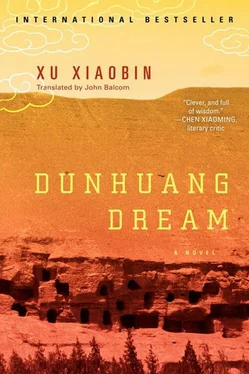


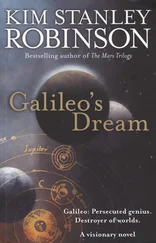
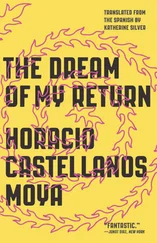

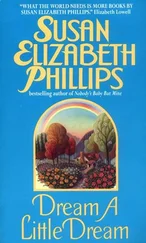
![Theresa Cheung - The Dream Dictionary from A to Z [Revised edition] - The Ultimate A–Z to Interpret the Secrets of Your Dreams](/books/692092/theresa-cheung-the-dream-dictionary-from-a-to-z-r-thumb.webp)
